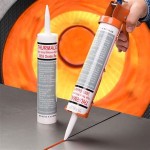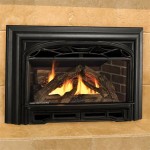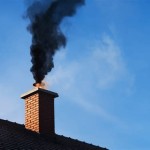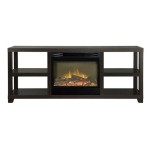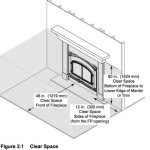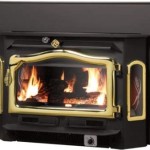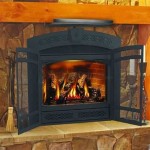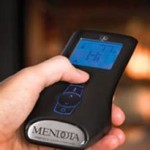Fireplace Wood Heater Inserts: A Comprehensive Guide
Fireplace wood heater inserts represent a significant upgrade to traditional open fireplaces, offering improved heating efficiency, reduced emissions, and enhanced safety features. These self-contained units are designed to fit directly into existing fireplace openings, transforming a drafty and inefficient amenity into a powerful and effective heating source. Understanding the functionality, types, installation requirements, and maintenance aspects of fireplace wood heater inserts is crucial for homeowners contemplating this heating solution.
The primary inefficiency of traditional open fireplaces stems from their inherent design. As a fire burns, it draws significant amounts of air from the room to fuel combustion. This air, heated by the fire, is then largely lost up the chimney along with smoke and combustion byproducts. The result is a net loss of heat from the room, as the fireplace draws in cold air to replace the heated air that escapes. Moreover, open fireplaces often exhibit inconsistent burning patterns, leading to incomplete combustion and the release of harmful pollutants.
Fireplace wood heater inserts address these issues by creating a closed combustion system within the existing fireplace structure. The insert's airtight construction minimizes the amount of air needed for combustion, reducing drafts and maximizing heat retention. Combustion air is often controlled and directed to optimize burning efficiency, leading to more complete wood consumption and reduced smoke production. This controlled combustion process also allows for more consistent and predictable heat output.
Understanding the Mechanics of Fireplace Wood Heater Inserts
The operation of a fireplace wood heater insert relies on several key components working in unison to maximize heating performance. The firebox, typically constructed of cast iron or steel, houses the wood fuel and combustion process. Its airtight design is critical for controlling airflow and promoting efficient burning. A door, usually equipped with a glass panel, allows for viewing the fire while maintaining an airtight seal. This viewing window also provides a degree of radiant heat to the room.
Air intake controls regulate the amount of air entering the firebox. These controls allow the user to adjust the burning rate, heat output, and overall efficiency of the insert. A higher air intake setting typically results in a hotter but faster-burning fire, while a lower setting allows for a slower, more controlled burn. Modern inserts often feature secondary air injection systems, which introduce preheated air into the upper firebox to burn off uncombusted gases and particles, further reducing emissions and improving efficiency.
A flue liner is essential for venting combustion gases safely out of the chimney. This liner, typically made of stainless steel, extends from the insert's flue collar to the top of the chimney, preventing corrosive gases from damaging the existing chimney structure and ensuring proper draft. The flue liner size and installation must comply with local building codes and manufacturer specifications.
Many inserts incorporate a blower or fan system to circulate heated air into the room. This blower draws air from around the firebox, heats it, and then pushes it back into the room, increasing the speed and efficiency of heat distribution. Blower systems are particularly beneficial for heating larger spaces or rooms with poor air circulation.
Types of Fireplace Wood Heater Inserts
Fireplace wood heater inserts are available in various sizes, styles, and heating capacities to accommodate different fireplace openings and heating requirements. The size of the insert should be carefully matched to the dimensions of the existing fireplace and the area intended to be heated. Overly large inserts may result in inefficient burning and excessive heat output, while undersized inserts may not provide sufficient warmth.
Cast iron inserts are known for their durability and excellent heat retention properties. They tend to radiate heat more evenly and slowly compared to steel inserts. However, cast iron inserts can be heavier and more expensive than their steel counterparts. Steel inserts, on the other hand, heat up more quickly but may also cool down faster. They are often more affordable and readily available than cast iron models.
Catalytic inserts utilize a catalytic combustor, a ceramic honeycomb coated with precious metals, to oxidize unburned gases and particles at a lower temperature than non-catalytic inserts. This technology results in significantly reduced emissions and improved efficiency. Catalytic inserts typically offer longer burn times and cleaner combustion compared to non-catalytic models. However, the catalytic combustor requires periodic replacement and can be more sensitive to certain types of wood fuel.
Non-catalytic inserts rely on engineered air channels and combustion chamber designs to achieve clean burning. These inserts often feature secondary air injection systems and precise air control mechanisms to optimize combustion. While they may not achieve the same level of emission reduction as catalytic inserts, non-catalytic models generally require less maintenance and are less sensitive to fuel type.
Some inserts also feature aesthetic enhancements such as decorative doors, trim kits, and enamel finishes. These features allow homeowners to customize the look of the insert to complement their existing décor.
Installation and Maintenance Considerations
Proper installation is paramount to the safe and efficient operation of a fireplace wood heater insert. Installation should always be performed by a qualified professional certified in installing wood-burning appliances. Incorrect installation can lead to dangerous conditions such as carbon monoxide leaks, chimney fires, and improper venting. The installer will ensure that the insert is properly sized, connected to a suitable flue liner, and installed according to manufacturer specifications and local building codes.
Before installing an insert, the existing chimney should be thoroughly inspected and cleaned. Any cracks, damage, or obstructions should be addressed to ensure proper draft and prevent chimney fires. The chimney liner should be inspected for integrity and replaced if necessary. A properly sized and installed flue liner is crucial for preventing corrosive gases from damaging the chimney structure and ensuring efficient venting of combustion byproducts.
Regular maintenance is essential for maintaining the efficiency and safety of a fireplace wood heater insert. The ash should be removed regularly to prevent it from blocking airflow and reducing combustion efficiency. The frequency of ash removal will depend on the type of wood burned and the frequency of use. It is advisable to use a metal shovel and container for ash removal and to dispose of ash in a non-combustible container away from the house.
The glass door should be cleaned periodically to remove soot and creosote buildup. Special glass cleaners designed for wood stoves are available for this purpose. Avoid using abrasive cleaners or scouring pads, as they can scratch the glass. Regular cleaning of the glass door will improve visibility of the fire and enhance the aesthetic appeal of the insert.
The flue liner should be inspected and cleaned annually by a qualified chimney sweep. This inspection will identify any buildup of creosote, a highly flammable substance that can accumulate in the chimney system. Creosote buildup is a leading cause of chimney fires. Regular cleaning will remove creosote and ensure that the chimney is functioning safely and efficiently.
The insert should be inspected annually for any signs of wear or damage. Check for cracks in the firebox, leaks in the flue system, and damage to the air intake controls. Any necessary repairs should be performed promptly to prevent further damage and ensure safe operation.
Burning seasoned, dry wood is crucial for optimal performance and reduced emissions. Wet or unseasoned wood contains a higher moisture content, which reduces combustion efficiency and increases creosote production. Seasoned wood should have a moisture content of less than 20% and should be stored in a dry, well-ventilated area.
By understanding the mechanics, types, installation requirements, and maintenance aspects of fireplace wood heater inserts, homeowners can make informed decisions about their heating options and enjoy the benefits of a safe, efficient, and environmentally friendly heating solution. While other options such as gas inserts and electric fireplace inserts exist, wood burning inserts offer a renewable and often more cost-effective heating alternative, which allows for independence from reliance on utilities.

Lopi Premium Wood Fireplace Inserts Custom Hearth Fireplaces And Stoves

Wood Fireplace Inserts Burning For Fireplaces Rockford Chimney

Large Flush Wood Rectangular Nexgen Fyre Made In America Fireplace Xtrordinair

Should I Use A Fireplace Insert Or Wood Stove To Heat Up My Home

Buy Regency Cascades Wood Insert I2500 Or In

Gas Logs Vs Wood Burning Fireplaces Dc Area Fireplace Service

Avalon Olympic Wood Insert Cedar Hearth Mick Gage Plumbing Heating

Wood Burning Fireplace Inserts Sierra Hearth And Home

Fireplace Inserts Gas Wood Pellet Electric Best Fire Hearth Patio

I1500 Hybrid Catalytic Wood Insert Epa Inserts By Regency
Related Posts

